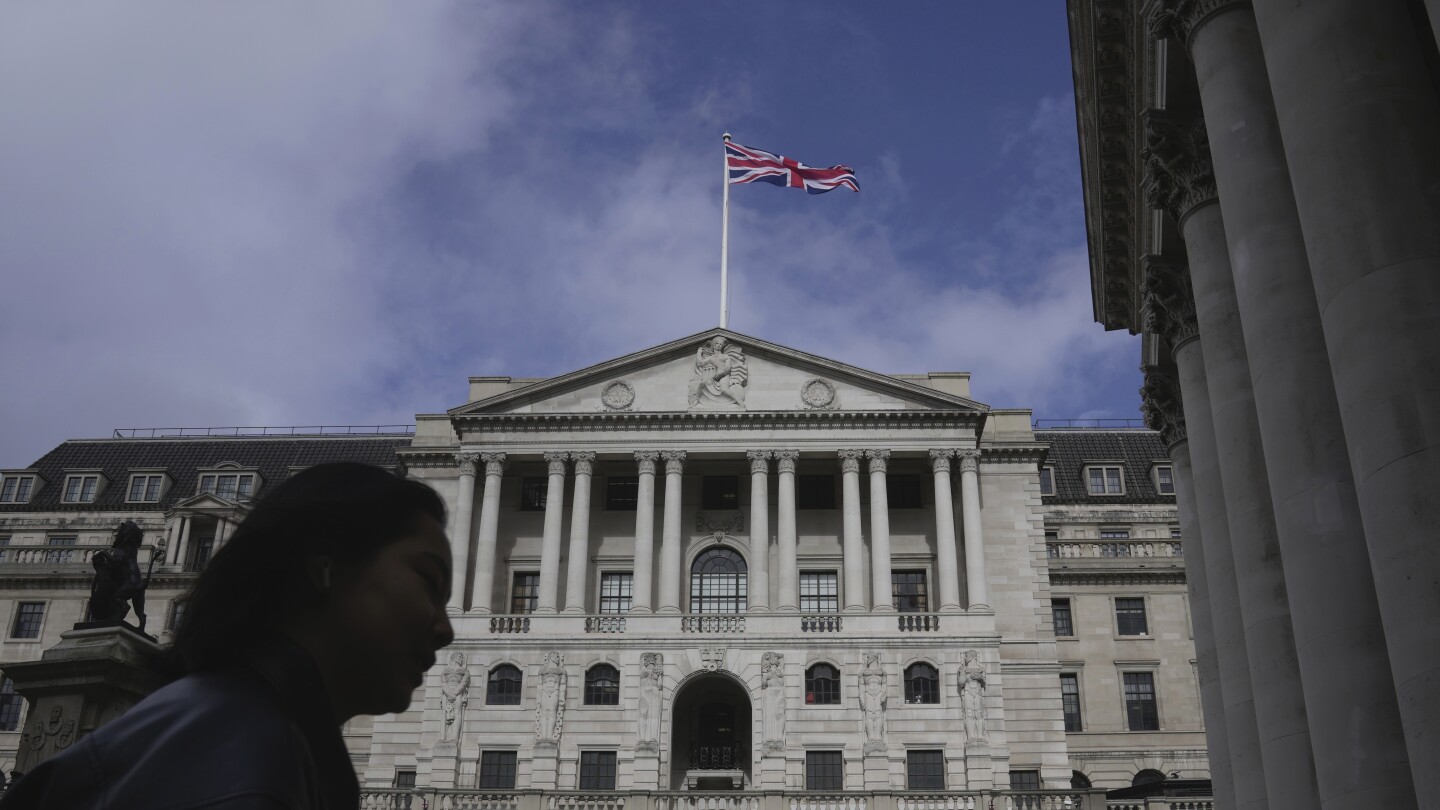LONDON (AP) — The Bank of England is widely expected to indicate Thursday that interest rates could be cut in the coming months following news that inflation across the U.K. is falling faster than expected.
The central bank, which sets monetary policy for the U.K., is expected to keep its main interest rate unchanged at a 16-year high of 5.25%, as it has since August.
But like the U.S. Federal Reserve, which also kept rates on hold Wednesday, the Bank of England is expected to show that it is inching toward cutting borrowing costs as price rises ease.
Central banks around the world raised interest rates aggressively in late 2021 from near zero to counter price rises first stoked by supply chain issues during the coronavirus pandemic and then by Russia’s invasion of Ukraine, which pushed up food and energy costs.
Higher interest rates — which cool the economy by making it more expensive to borrow, thereby bearing down on spending — have contributed to easing inflation worldwide, though they also have affected economic activity.
The British economy, for example, has barely grown over the past year, and the near-term outlook is not much better.
U.K. inflation fell to a 2.5-year low of 3.4% in February — more than anticipated — and is now not far off the Bank of England’s target rate of 2%.
With domestic energy bills lower than last year, inflation is set to get a further downward nudge in the coming months, possibly to below the bank’s goal. As a result, economists think the Bank of England will be able to hint Thursday that a cut may come soon, possibly at the next policy meeting in May.
It’s not totally straightforward, though, as bank forecasts last month indicated a further upward tick in inflation in the second half of the year.
“With the lagged impact of earlier interest rate rises and a weak economy likely to constrain price pressures throughout this year, the Bank of England’s forecast that inflation will start drifting higher later this year looks excessively downbeat,” said Suren Thiru, economics director at the Institute of Chartered Accountants in England and Wales.
February’s inflation figures, “set the scene for summer rate cuts,” Thiru added.
Britain’s governing Conservative Party hopes that lower inflation and the ensuing decline in interest rates may trigger a feel-good factor ahead of a general election that has to take place by January 2025.
Opinion polls show the main opposition Labour Party way ahead and on track for a big victory over the Conservatives, who have been in power since 2010.
Most speculation is that Prime Minister Rishi Sunak will call an election in the fall, when the economic backdrop is likely to be more benign than it is now.

